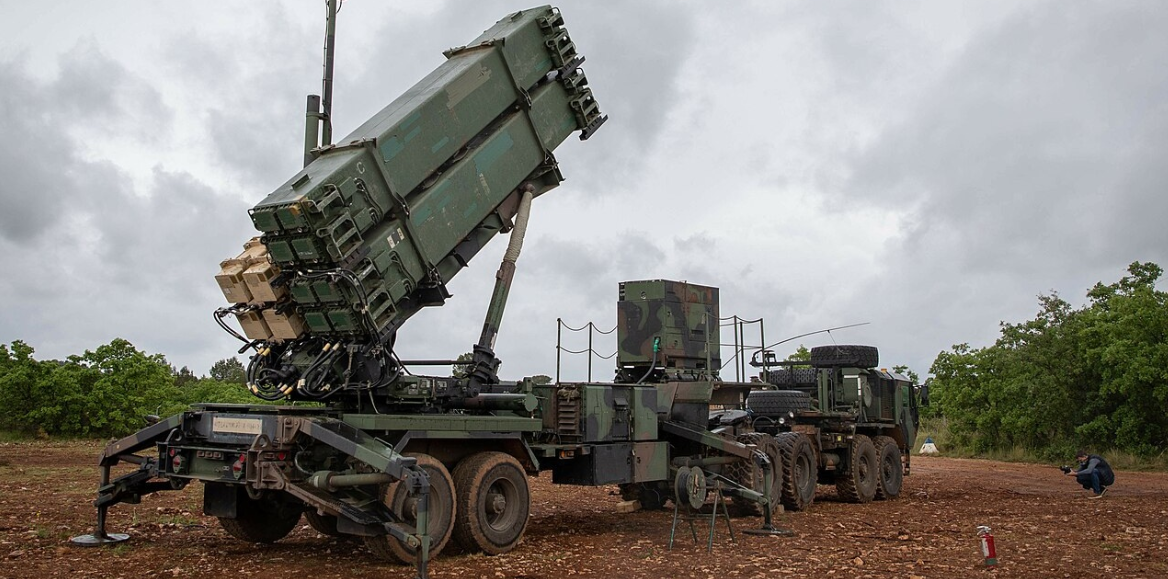Germany and Switzerland Want to Build Patriot Missile Batteries Together

A longtime neutral nation, Switzerland ensured that there were carveouts in its agreement with Germany that would allow for it to opt out of any potential European war.
Europe continues its attempt to rearm itself in the face of the perceived threat from Russia’s resurgent military and as the United States turns away from the continent. This time, it comes in the form of a shared air defense posture with US-made Patriot missiles between NATO member Germany…and nominally neutral Switzerland. It’s part of Germany’s European Sky Shield Initiative (ESSI) and, at least on paper, is an interesting development.

Germany launched the ESSI in 2022 as a response to what Berlin perceived to be growing threats in Europe in the aftermath of Russia’s invasion of Ukraine. The idea was to pool together air and missile defense systems across multiple European states and build layers of defense (short, medium, and long range). Switzerland has formally joined ESSI, meaning it has committed to cooperate with other countries on procurement, training, maintenance, and logistics.
As part of its Air2030 defense modernization, Switzerland ordered five Patriot fire units—including the radars, launchers, and so on—from the United States, plus advanced PAC-3 MSE interceptors and GEM-T missiles. Switzerland values its national self-sufficiency and has entered agreements with German-based companies and its own RUAG to be able to better maintain key components of the Patriot system, according to Army Recognition.
Switzerland Is Slowly Moving Away from Neutrality
Of course, European rearmament is something that sounds great on paper. But implementing such a sweeping program is proving to be problematic—especially because the American weapons that many Europeans still rely upon are becoming scarcer, as US arsenals are depleted faster than replacements can be produced. Therefore, deliveries of key Patriot missile batteries to Switzerland have been delayed due to the US reprioritizing the production and shipments of Patriot systems and missiles to directly support Ukraine.
Switzerland is being pushed to the back of the line, as demands from the Ukraine War take precedence.
In response to these delays, Germany is attempting to step up its own defense industrial base to accommodate the production of Patriot missile systems in Germany. The Germans and key partners intend one day to build both the launchers themselves as well as the missiles needed for the Patriots (the PAC-2 missiles) through MBDA, a European defense contractor. This is all part of Europe’s ultimate mission of reducing dependence on US supply chains and increasing European industrial base for air-and-missile-defense.
Interestingly, Switzerland has long jealously guarded its neutrality. By joining ESSI, embracing Patriot missile defense systems, and pursuing industrial cooperation with Germany and the United States, there is clearly a seismic shift occurring in Swiss foreign policy. Switzerland is redefining its neutrality in the age of advanced missile threats, drones, and hybrid warfare. Swiss defense policymakers believe that ESSI allows for them to remain neutral in the basic legal sense, yet still participate in collective defense. Indeed, Switzerland ensured that there were carveouts in its agreement with Germany that would allow for it to opt out of any potential European war in order to preserve its neutrality. Still, the fact that Switzerland is doing anything in the realm of collective defense is a shocking development.
A Fundamental Shift in German Defense Policy?
By spearheading the ESSI project, Berlin is acting as the linchpin in what it assesses to be growing European defense needs. Germany wants to host production, be the key coordinator of the ESSI program, and to be the one to help neutral states, like Switzerland, in contributing to collective defense—while still giving Switzerland an offramp to conflict that would jeopardize its centuries-long neutrality.
All this is part of Germany attempting to refashion itself into a powerhouse in Europe, not just economically, but militarily. Berlin is attempting to build the infrastructure to support European rearmament, with or without the Americans.
But the dependence on the US Patriot system doesn’t sound like the stuff of continental self-reliance. It’s a key weakness of the proposed European air defense union, in fact—one that all players must overcome if they are to ever stand on their own and believably deter Russia.
Germany and Switzerland moving toward their shared air defense mission with Patriots is a signal of Europe entering a new era of collective defense architecture. This era is about more than missiles and radars—but about identity, industrial sovereignty, and deterrence in a world where threats are multi-domain and constantly evolving.
Switzerland should likewise ask itself if Patriot missile batteries, and ties to the chronically underdelivering Europeans, are really worth abandoning its long-running neutrality for. Given how incapable Europe has shown itself at rearmament, and the fact that the United States’ key weapons stockpiles are dwindling at dangerous levels, both Switzerland and Germany should rethink some of the assumptions undergirding the ESSI project.
- Questions and Answers
- Opinion
- Motivational and Inspiring Story
- Technology
- Live and Let live
- Focus
- Geopolitics
- Military-Arms/Equipment
- Seguridad
- Economy
- Beasts of Nations
- Machine Tools-The “Mother Industry”
- Art
- Causes
- Crafts
- Dance
- Drinks
- Film/Movie
- Fitness
- Food
- Juegos
- Gardening
- Health
- Home
- Literature
- Music
- Networking
- Other
- Party
- Religion
- Shopping
- Sports
- Theater
- Health and Wellness
- News
- Culture

